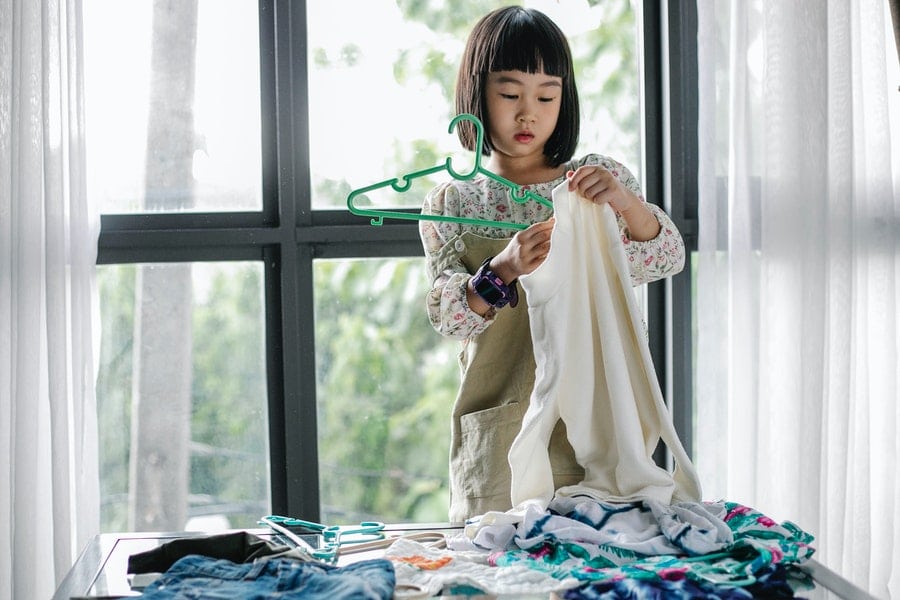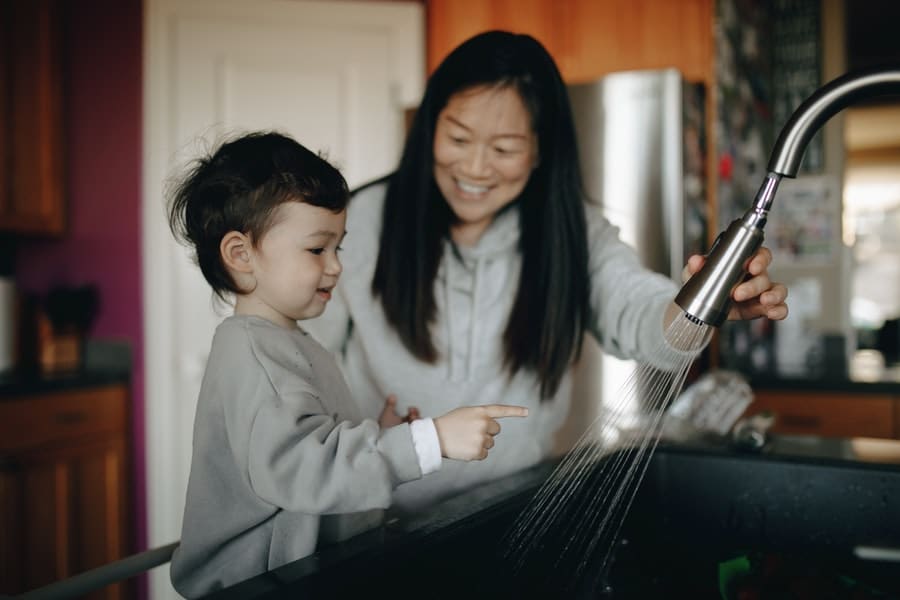Some people believe that chores are unnecessary; kids should be kids! Other people believe that chores are absolutely essential to building a responsible adult. The truth is that chores are important, but how they are presented is just as important.
1. Chores Help Children Learn Responsibility and Self-Reliance
A chore isn’t a punishment. A chore is, in some ways, a privilege. Cleaning a room shows pride and responsibility and is a way to display someone’s gratitude for what they have. Children should understand not only that they “need to do” chores but why people do chores. A great example: You take care of a prized toy so that it continues to function and so that you have it for a longer amount of time. When children are taught chores, they are better able to take care of themselves in the future.

2. Chores Are a Great Way for a Family to Bond
Having a “cleaning day,” cooking together, and organizing together should be seen as a fun family activity, not something to avoid or moan about. It’s part of quality time and can be a teaching moment. Children will learn more about how to care for things and how to complete tasks such as making a sandwich or baking cookies. The more time children spend with their parents completing activities and tasks, the more they generally thrive.
Young children may not be able to do much but organize their own toys. But even doing that can help them with their intellectual processing. Where do small toys go? Where do larger toys go? Is there a bin so that you can sort them by color?

3. So Why Do Children Often Resist Chores?
If chores can be fun and teach children independence, why is it so hard to get children to complete chores? Well, as adults we’re often not very wild about chores either. That’s especially true when we perceive chores as stopping us from doing the things we actually enjoy.
Often, children hate chores because chores are seen as a punishment. Too frequently, parents do use chores as a punishment; “You’re grounded and need to take out the trash this week.” Chores should never be seen as a punishment because it’s something that everyone will eventually need to do.

Children also shouldn’t see chores as optional, because that’s when they start to think about “other things they could be doing.” Rather than telling a child “Could you clean up your room?” tell your child something like “Either you can clean up your room now or clean it up after dinner.” Giving them a binary decision tree like this makes them feel like they’re in control, but they still ultimately have to complete the task.
Ultimately, chores are about as important to children as any other type of responsibility — what matters most is how you implement it. If chores are perceived as punishment, you can end up with children who are reluctant to take charge. If chores are something that the whole family does and something that they understand as both a responsibility and a right, they will be more receptive in the future.


Thanks for sharing informative articles. Field Promax is a free field service management platform, for mobile and desktop users. we also provide cleaning services. For more information visit our site: https://www.fieldpromax.com/